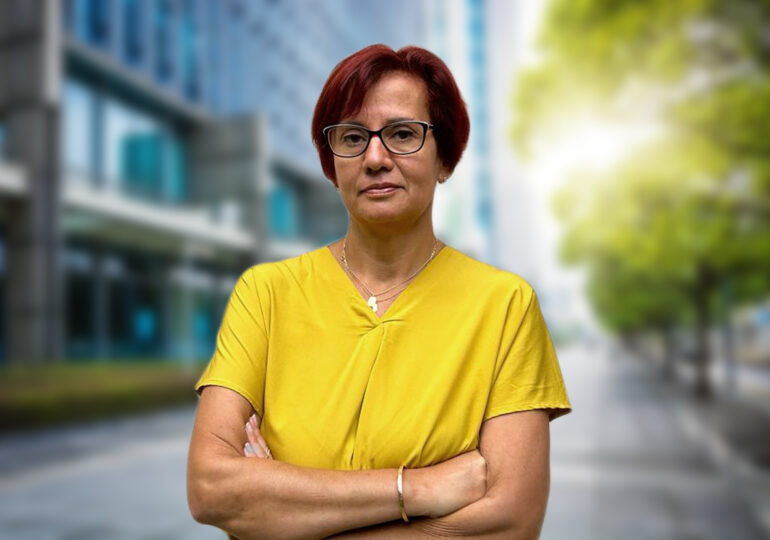Surely the request to abolish the baccalaureate would be exaggerated. In most European countries, there is an exam to certify competencies at the end of the high school cycle, and it is normal for it to be so.
But, without this seemingly shocking request from the Association of Students from Constanța, we probably wouldn’t have talked about the necessity of what they actually want, which is another form of the baccalaureate. And this is undoubtedly a very legitimate request.
Equally true is that the form of the claim has drawn, as expected, a wave of hateful and contemptuous comments towards them, ironically some illiterate ones, from those who have only read or understood the title, comments that, understandably, advocate for the current form of the exam.
What are the students from Constanța actually telling us? Something that is already known but very difficult to admit: in its current form, which the new education laws preserve, the baccalaureate is irrelevant in relation to the real competencies of high school graduates.
Why? For the same reason all evaluations in Romanian education, and Romanian education itself, are irrelevant: the emphasis is not on what children know and can actually use after 12 years of school, on their functional literacy, in other words, but on the quantity of information they have managed to memorize, on fitting into the training algorithms.
"During high school, students are taught to memorize, not to understand what is taught to them, and after the exam, everything they memorized will be forgotten, as it is not useful for their future. Students end up learning just to pass the exam and get rid of a worry, not to test their knowledge, as the exam does not do that (...)
In addition to the fact that there is a lot of material, it is outdated. It is totally absurd for a European Union member country to remain in a continuous time loop! It is the year 2024, and students are still forced to learn lengthy commentaries on literary works from the 1800s, which they forget anyway after leaving the exam room," write the students from Constanța.
This baccalaureate, as is known, can be passed with the highest grade by a student who has memorized a commentary on a literary work they haven't read, but it can be failed by a child who has read the work and writes what they understood from it, their conclusions.
And this is true for most subjects. School does not shape, and exams do not test real competencies, the actual set of skills a young person enters life with.
"And yet, what is being done at school? The astonishing answer is: nothing. I refer here to the knowledge level of my students: many of them, in 13 years of school, have not read a single book or - if they have read something for the Baccalaureate - have not understood and have not retained much. Their scientific knowledge is at the level of a fourth-grade student; purely intuitive. Almost none of them can calculate the area of a right triangle. Some have problems even understanding what 'area' means (...)
Overall, everything happens 'as God wants', because 'that's fate'. It's hard to say what this is: fatalism, superstition, the myth of the 'providential man', conspiracy theories, new media animism, indifference? One thing is certain: school has not done its job, as its purpose is to provide all those who follow it with the tools that allow them to understand the world they live in. You don't emerge from school with 'information', but with the ability to read the world you move in," wrote Professor Mihai Maci for Contributors.ro.
Why are the oral exams of the baccalaureate rather a formality, only failed by those who do not show up, and have no influence on the final grade? In other words, exactly those tests where you can best explore what a child has in mind beyond mechanically memorized issues.
It is not about simple or easy subjects at the baccalaureate, about many or few tests. It is about the relevance of the testing. What does it say and what does its result say about a young person's real acquisition of skills, about their ability to read the world they move in?
If students who have passed the baccalaureate remain at a purely intuitive level, how relevant is the baccalaureate? How can we consider it to be a correct sieve, as long as around us, including on TV, at the top of politics and the state, people speak and write so illiterately, with such a limited vocabulary and such poor term ownership?
Why does nothing change, even though the truth is evident beyond the obsession of idealizing formulas inherited from communism? For the same reason, generally education in Romania remains frozen. Because it is a form built for the tutoring industry.
A school and a testing system focused on critical thinking, connections, and the use of theoretical formulas instead of their mere reproduction would no longer need tutoring, but would require teachers with a different way of teaching, a different understanding of their mission.
I believe the students from Constanța deserve to be applauded for their courage to publicly say that the "emperor" of exams is naked. Yes, it is! And the role of adults should be, instead of humiliating and rebuking them, to analyze and seek solutions.
The reaction of many baccalaureate diploma holders to the despair and common-sense arguments of some young people is yet another argument for the irrelevance of this exam.

